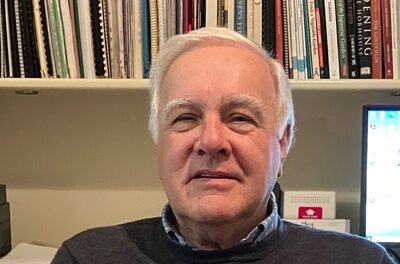Dr Greg Stewart
In Victoria each year, more people die of accidental drug overdose than in motor vehicle accidents. And more of these deaths are due to legal, prescription medication than to illegal drugs.
Regional Victoria is not immune to this problem. In fact, there is a higher proportion of accidental overdose deaths in regional Victoria than in metropolitan Melbourne.
Recent developments in treatments for drug dependence have been described as “game changers” which hopefully will reduce the number of overdose deaths. Legislative changes to decriminalise personal drug use could also lead to reductions in the death toll.
In 2020, there were 526 overdose deaths in Victoria reported by the coroner. Of these 398 involved pharmaceutical drugs and 270 involved illegal drugs. Some involved both. There were twice as many prescription opiate overdose deaths compared with heroin overdose deaths. Most overdose deaths were from combined (multiple) drug toxicity. In comparison the Victorian Road toll for 2020 was 211 deaths.
Opium is dried latex from the seed capsules of the opium poppy. Approximately 12% of opium is comprises the analgesic alkaloid, morphine. Its medicinal use dates back many thousands of years to ancient Greece.
Morphine is a potent analgesic (pain reliever) and has been used widely around the world for many conditions. Typically in western medicine it is used as an analgesic, particularly in palliative care and as an anaesthetic agent.
In the early 1990s in the US, an enterprising group of doctors, the three Sackler brothers, bought a small pharmaceutical company, Purdue Pharmaceuticals. They developed a longer acting semi-synthetic opiate named oxycodone marketed as Oxycontin. This was marketed unethically to doctors and pharmacists to promote its use for everyday pain despite there being persistent reports of drug dependence and overdose deaths. This is the same Sackler family that donated many millions of dollars to the Metropolitan Museum of Art in New York, the Guggenheim Museum and a number of educational institutions.
In October 2020 it was reported that Purdue Pharmaceuticals reached a settlement worth US$8.3 billion for lawsuits related to opioid dependence and overdose deaths. This has been dubbed the opioid epidemic in the United States.
Prescription opioid use in Australia increased dramatically in the late 1990s. Partly, this was due to the Purdue marketing campaign. This was despite the fact that there is very little evidence of any benefit in the use of opiate medication in chronic (long-term) non-cancer pain.
Opiate Replacement Therapy (ORT) involves dispensing of ORT medicines to patients to address their dependence on heroin and other prescription opioid substances such as endone and fentanyl. The two drugs used are buprenorphine and methadone. In last two years, injectable buprenorphine (with brand names Buvidal and Sublocade) has become available as a monthly intramuscular injection rather than oral medication. The benefits include more even drug levels, thus less highs and lows, once a month contact with health professionals, more privacy, the ability to travel, significant cost reductions and no risk of diversion (being given or sold to someone else).
Legislative changes could also have a significant impact on accidental overdose deaths. Portugal decriminalised the personal use of all drugs in 2001. Drug related deaths remain below the EU (European Union) average. The proportion of prisoners sentenced for drug offences has fallen from 40% to 15%. Rates of drug use remain consistently below the EU average. The ACT will soon decriminalise possession of small amounts of illicit drugs including heroin, MDMA and methamphetamine. The ACT health minister, Rachel Stephen-Smith, said it was clear current drug laws did not work.
Currently the Victorian Prison Population is growing, new prisons are being constructed and the proportion of the prison population incarcerated for illicit drug use is also increasing. Rather than new prisons Victoria needs to offer treatment for drug related problems, not incarceration.
Dr Greg Stewart is general practitioner who, before his recent retirement, specialised in treatments for drug and alcohol dependence at Springs Medical.
International Overdose Awareness Day is on August 31. Visit the website.
If you, or someone you know, requires help, call Lifeline on 13 11 14.





